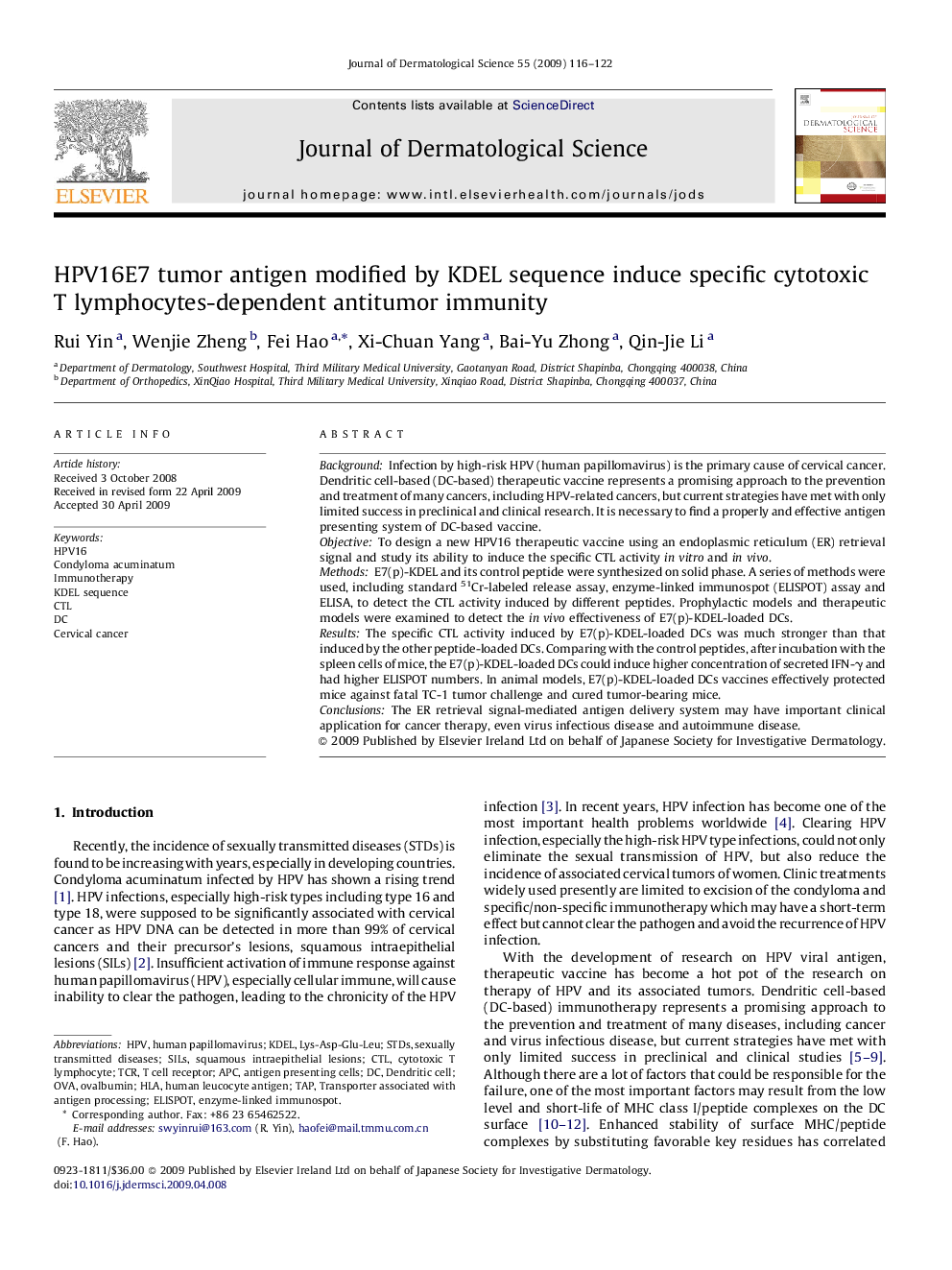| Article ID | Journal | Published Year | Pages | File Type |
|---|---|---|---|---|
| 3214012 | Journal of Dermatological Science | 2009 | 7 Pages |
BackgroundInfection by high-risk HPV (human papillomavirus) is the primary cause of cervical cancer. Dendritic cell-based (DC-based) therapeutic vaccine represents a promising approach to the prevention and treatment of many cancers, including HPV-related cancers, but current strategies have met with only limited success in preclinical and clinical research. It is necessary to find a properly and effective antigen presenting system of DC-based vaccine.ObjectiveTo design a new HPV16 therapeutic vaccine using an endoplasmic reticulum (ER) retrieval signal and study its ability to induce the specific CTL activity in vitro and in vivo.MethodsE7(p)-KDEL and its control peptide were synthesized on solid phase. A series of methods were used, including standard 51Cr-labeled release assay, enzyme-linked immunospot (ELISPOT) assay and ELISA, to detect the CTL activity induced by different peptides. Prophylactic models and therapeutic models were examined to detect the in vivo effectiveness of E7(p)-KDEL-loaded DCs.ResultsThe specific CTL activity induced by E7(p)-KDEL-loaded DCs was much stronger than that induced by the other peptide-loaded DCs. Comparing with the control peptides, after incubation with the spleen cells of mice, the E7(p)-KDEL-loaded DCs could induce higher concentration of secreted IFN-γ and had higher ELISPOT numbers. In animal models, E7(p)-KDEL-loaded DCs vaccines effectively protected mice against fatal TC-1 tumor challenge and cured tumor-bearing mice.ConclusionsThe ER retrieval signal-mediated antigen delivery system may have important clinical application for cancer therapy, even virus infectious disease and autoimmune disease.
